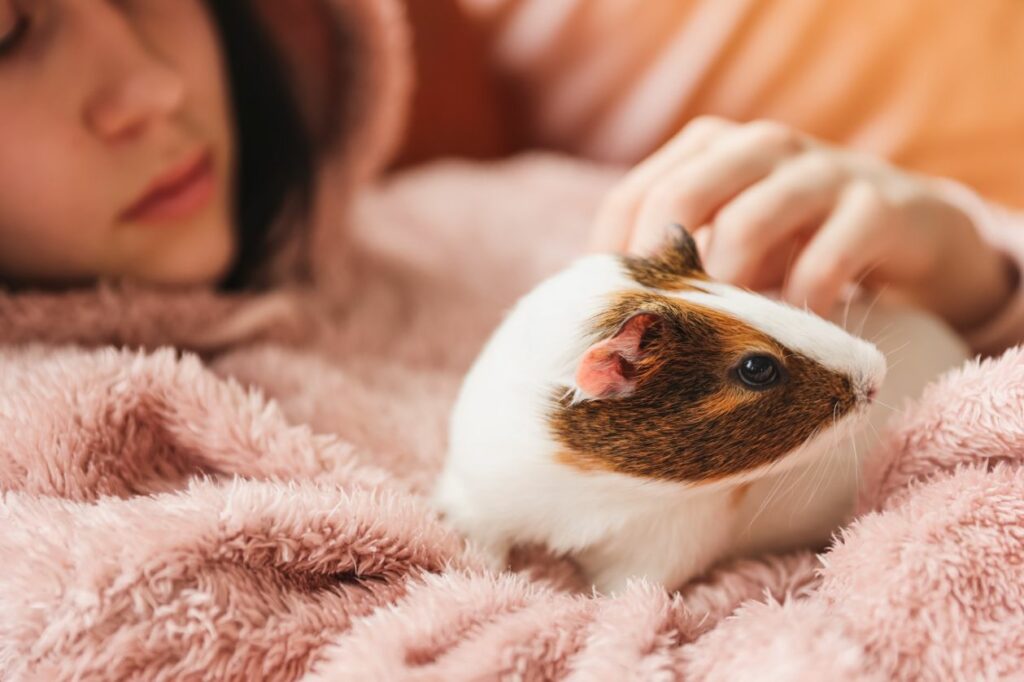When it comes to identifying animals, it is essential to classify them correctly. One of the most debated topics in the animal kingdom is whether guinea pigs are rodents.
While some people believe that they are rodents, others are not so sure. In this blog post, we will explore whether guinea pigs are rodents or not.

What are Guinea Pigs?
Guinea pigs (Cavia porcellus) are small, domesticated rodents that are native to South America. They are popular as pets because they are friendly, social, and easy to care for. They are also known as cavies and are one of the most common household pets.
What are Rodents?
Rodents are mammals that are characterized by their continuously growing incisors. They are found all over the world, and there are more than 2000 species of rodents. Some of the most common rodents include mice, rats, squirrels, and beavers.
Characteristics of Guinea Pigs
Physical Characteristics
Guinea pigs are small rodents that can grow up to 10 inches long and weigh up to 2.6 pounds. They have a round body, short legs, and a small head. They come in various colors and patterns, including white, black, brown, and mixed.
Behavioral Characteristics
Guinea pigs are social animals that thrive in groups. They are active during the day and sleep at night. They communicate with each other using a range of sounds, including chirps, whistles, and grunts. They are also known for their curious and friendly nature.
Characteristics of Rodents
Physical Characteristics
Rodents are small to medium-sized mammals that have sharp incisors that grow continuously. They have a diverse range of physical characteristics, including long tails, large ears, and sharp claws. They are found all over the world, and their size can range from a few centimeters to over a meter in length.
Behavioral Characteristics
Rodents are known for their adaptability and intelligence. They are social animals that live in groups or colonies. They communicate with each other using a range of sounds, including chirps, whistles, and squeaks. They are also active during the night and sleep during the day.
Classification of Guinea Pigs and Rodents
Scientific Classification
Guinea pigs belong to the family Caviidae, which is a group of rodents that are native to South America. The scientific classification of guinea pigs is as follows:
- Kingdom: Animalia
- Phylum: Chordata
- Class: Mammalia
- Order: Rodentia
- Family: Caviidae
- Genus: Cavia
- Species: Cavia porcellus
Differences Between Guinea Pigs and Other Rodents
Size and Shape
Guinea pigs are larger than most rodents and have a unique body shape that sets them apart from other rodents. They have a broad and round body, while most rodents have a more elongated body shape.
Teeth and Digestive System
Guinea pigs have four incisors, while most rodents have two incisors. Also, guinea pigs have a more complex digestive system than most rodents, which allows them to digest fibrous foods better.
Behavior and Socialization
Guinea pigs are social animals that thrive in groups, while most rodents are solitary animals. Also, guinea pigs are more vocal than most rodents, and they communicate with each other using a range of sounds.
Similarities Between Guinea Pigs and Other Rodents
Physical Appearance
Guinea pigs share some physical characteristics with other rodents, such as their continuously growing incisors and their small size.
Habitat and Diet
Guinea pigs and other rodents have similar habitat and dietary requirements. They both need a diet that is high in fiber and a habitat that provides them with plenty of hiding places and things to chew on.
Conclusion
In conclusion, guinea pigs are classified as rodents because they share many physical and behavioral characteristics with other rodents. However, they also have some unique characteristics that set them apart from other rodents, such as their body shape and digestive system.
Regardless of their classification, guinea pigs are unique and fascinating animals that make great household pets. As a veterinarian, it is essential to understand the classification of animals to provide them with the best possible care.
- How Long Do American Eskimo Dogs Live? Important Factors and Care Tips - September 29, 2023
- Do American Bulldogs Need Grooming? Essential Tips and Care Guidelines - September 29, 2023
- Do Bengal Cats Enjoy Playing? Essential Tips for Keeping Them Active - September 29, 2023